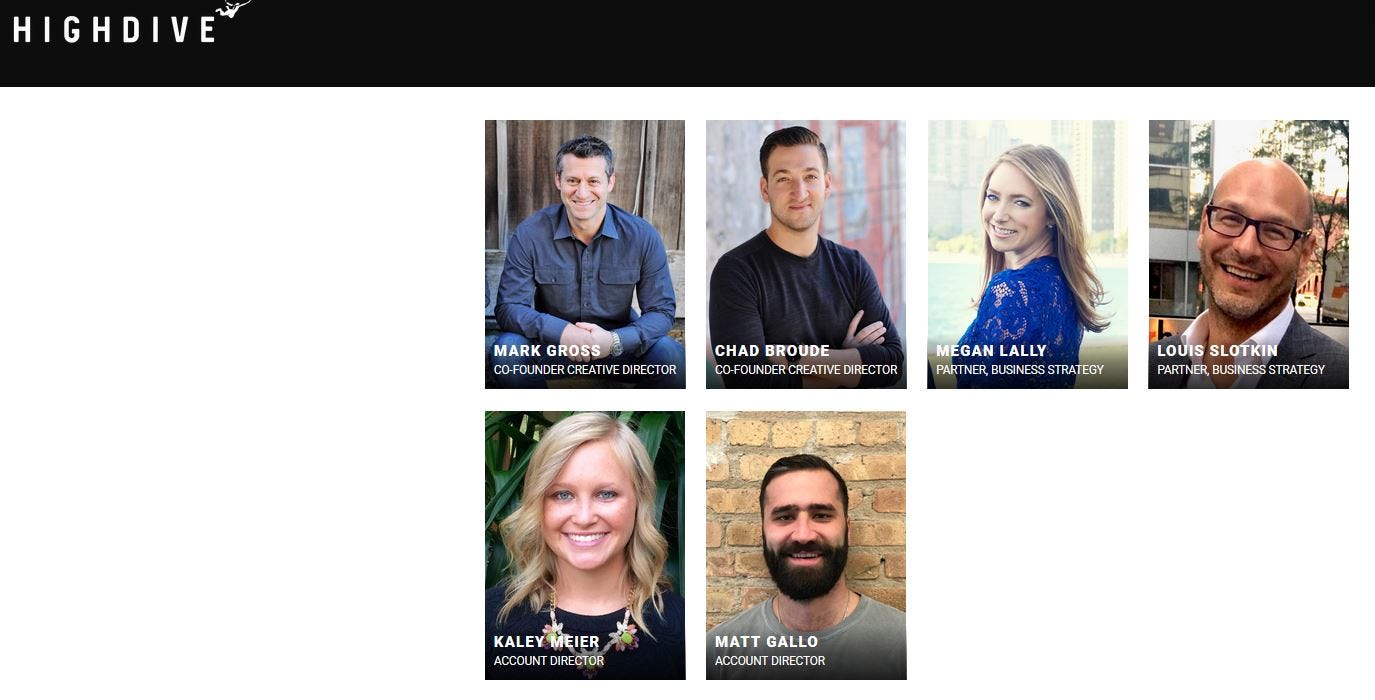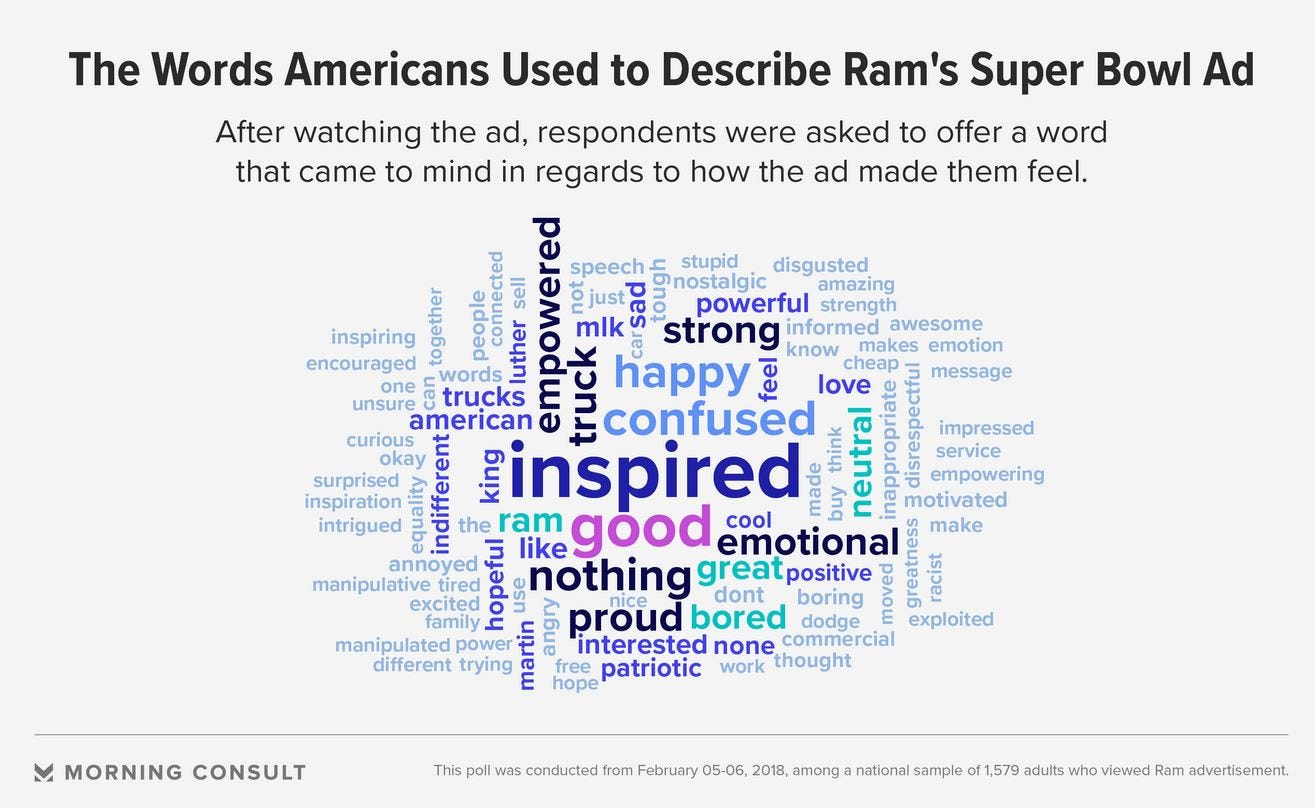How “Built To Serve” Garnered Ram All the Right Talk for All the Wrong Reasons

Maybe using the same speech in which Martin Luther King Jr. sardonically states, “In order to make your neighbors envious, you must drive this type of car” in your truck commercial isn’t the greatest of ideas. Ram learned that not all publicity is good publicity the hard way in their second 2018 Super Bowl slot, followed by an unprecedented amount of backlash on social media. Ram’s exploitive, inappropriate and frankly, ironic use of Martin Luther King Jr.’s speech as a way to sell their trucks was quickly criticized by the Twitterverse, but was this negative reaction intentional?
Super Bowl ads continue to rise in cost annually, while the ads continue to degrade in quality and their appropriateness in acknowledging social issues. Don’t get me wrong, I loved the “Alexa Loses Her Voice” bit by Amazon and “It’s a Tide Ad”, but every year I’m surprised and tired at seeing the millions of dollars brands like Ram spend, only to be absolutely destroyed by social media accounts. Super Bowl ads have become a phenomenon on their own, garnering just as much talk both online and at the office the next day as the game itself or the halftime performance. Some brands have even come to release their ads days in advance, completely ruining the element of surprise. With average costs ringing in at 5 million for 30 seconds of airtime for this year, many brands see this as a worthwhile investment in return for the exposure and amount of dialogue their ads will prompt. Ram’s now infamous ad was successful in striking emotion and sparking a conversation, but likely not to the same extent as anticipated.
Ram started off the night safe with their first spot, “Icelandic Vikings”, a whimsical piece if anything. It featured actual Vikings on their way to Minnesota in a Ram truck driving through treacherous road conditions, as a truck does in a truck commercial. They’re karaoke-styling Queen’s We Will Rock You, approaching Minnesota, only to discover the game is New England vs. Philly, not the Minnesota Vikings. Needless to say, this caused them to make a U-turn.
The slogan “Built for the unexpected” is then spoken. It left me along with much of Twitter with a smirk on our faces, with many reactions of amusement, and some remarking how Ram poked some fun at the Vikings lackluster season. It was clever, unique, depicted their product well, and garnered instant conversation and even some (not so serious) purchase intent.
Their latter advertisement, however, did quite the opposite, infuriating many. The commercial opened with a black text screen indicating the 50th anniversary of MLK’s “Drum Major Instinct” sermon, then depicting American Ram owners serving their communities, dispersed between shots of Ram Trucks. Luther’s speech on greatness played throughout, with the commercial ending with the tagline “Built To Serve” along with their logo. The reaction was immediate and exasperated.
As pointed out by Twitter users, Ram exploited and manipulated Martin Luther King Jr.’s words, who was known to be against capitalism and commercialism, as a way to sell its trucks.

Twitter users expressed feelings of disappointment, calling the ad “tone-deaf” “gross” “distasteful”, and “senseless”, “repulsive” and “exploitive”.
Ram’s ad was quickly dubbed the worst and most controversial ad of the night.
Twitter users were also quick to point out how in the full speech that was used by Ram, Luther disowns the use of capitalism and warns against the evils of advertising. One quick thinking user modified the ad and replaced the voiceover with Luther’s words on capitalism. It went viral on Twitter with 2.5 million views, and Ram has since removed several copies of the video.
One of the many elements of the original ad that disturbed me was how blatantly obvious Ram was trying to push trucks in my face, rather than attempting to honour MLK. There are shots of Ram trucks literally every two seconds between clips of American vetrans reuniting, and first responders and good samaritans rescuing, is what really put viewers like me over the edge, seeming out of place and forceful. We know of Ram’s capabilities and how well it performs in off road conditions! We saw that in the Vikings ad! These mini clips could have been easily left out, and likely would’ve reduced the damage.
So the natural question begged is whose idea was it to run this ad anyway, and why would Ram distastefully use Luther, an anti-capitalist to sell their trucks? Did no one in any part of the process, from the ad agency’s brainstorming team, to Ram’s executives imagine that this ad might be the tinniest problematic given the sensitivity of this topic and time? Well, the ad agency that thought of this brilliant commercial composed of… all white people.
Seriously.
Highdive agency, based in Chicago, who was hired for this spot, composes of seven white employees according to their website. Plus, their mission is to “rid the world of bad advertising”… yeah about that…

Even if there wasn’t diversity found in the agency’s boardroom, I would hope that SOMEONE in the process would point out the potential controversy in airing this ad, and the possible hindering of their brand image.
Maybe they were just hoping that most Americans would see the ad as only a minority did, claiming it to be “inspiring” and “beautiful” and “moving”. While most were vocally calling shame, there was still a minority present preaching the hard-working Americans showcased, and the importance of serving our communities in times of need.
In fact, in a survey conducted by Morning Consult of 1,579 American adults, the ad was said to surprisingly had set more positively among African-Americans than Caucasians.

Or maybe these white guys from Highdive knew that it would provoke emotions, and turn into free publicity. Dishing out all this money, they had to know it would spark controversy, and in turn, shares and viewings of the video on Ram’s conveniently monetized official YouTube account. I mean, it did generate an additional $1.6 million value with all the talk and views, as one of the most popular videos on YouTube according to Bloomberg, and another $8.6 million worth of publicity with the overload of tweets on this subject.
My conclusion is that with all the reaction garnered to this commercial, the executives were likely aware of what they were getting into, just not the extent of offense that would be taken.
There is a fine balance between honouring someone, and exploiting their voice as a means to sell your product. The executives likely expected the sense of patriotism and pride evoked by the ad would overlook their ironic and inappropriate use of MLK, but constantly shoving trucks in the viewer’s face only implies this ad’s primary purpose of sales over honouring Luther’s legacy even more.
There have been successful ads and posts in which brands simply associate themselves with a person, their message, and ultimately bring them honour, without pushing their product. This was not one of them.
The way in which Ram responded following the controversy further demonstrates their inability to understand this touchy topic or own up to their mistakes. Rather than apologizing and acknowledging their aggressively sales-focused ad, they decided to reinforce the bigger picture message in a tweet, and defense over their rights to use MLK’s speech.
Again, many brands are able to successfully recover from a PR nightmare, just as H&M did by owning up to their mistakes, and Ram is not one of them.
Whether you consider their ad somewhat of a success in it’s conversation or suspected ROI, or a brand nightmare, everyone can agree that diversity in the workforce integral in the decision-making process for mistakes like Ram’s not to happen again.
While I am continuing to lose faith in the advertising agency’s choices both in hiring and executing, at least American viewers and tweeters are as alert as ever of racism and exploitation.
Looking ahead, @kashanacualey joked on Twitter on the future of Super Bowl commercials:
“Next year we’ll see Rosa Parks shilling for Uber: “convenient, but you still have to sit in the back”.”
Let’s sure hope not.